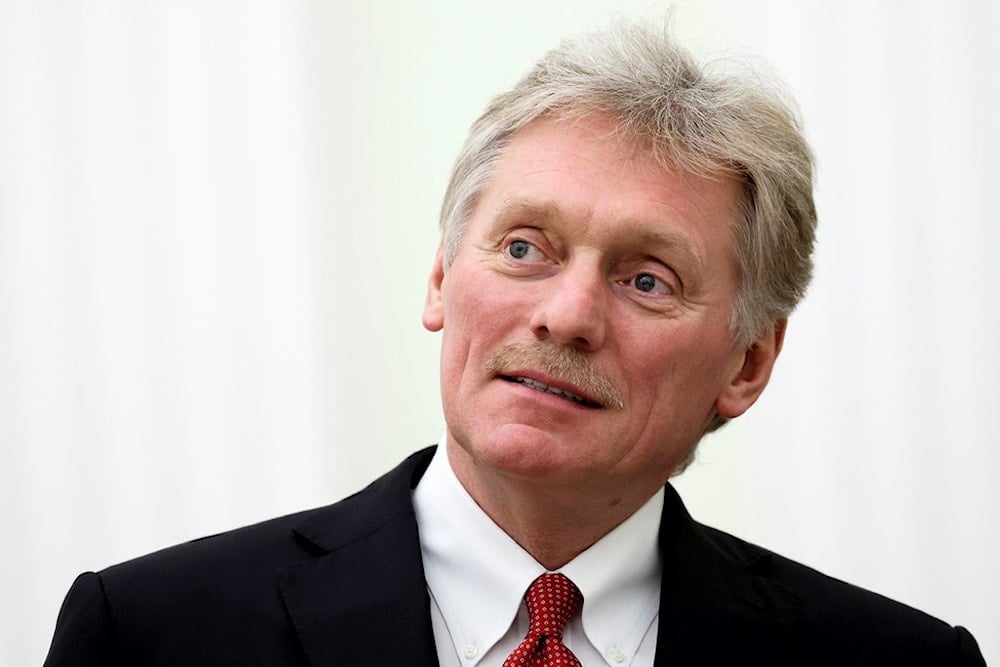Kremlin: Sending Russia's frozen funds to Kiev will not go unpunished
Kremlin Spokesperson Dmitry Peskov warned that attempts to utilize Russia's frozen assets as funds for Ukraine will be met with consequences.
-

Kremlin spokesperson Dmitry Peskov at the Kremlin in Moscow, Russia, Tuesday, October 10, 2023. (Kremlin Pool Photo via AP)
On Friday, Kremlin Spokesperson Dmitry Peskov warned that attempts to utilize Russia's frozen assets as funds for Ukraine will be met with consequences.
On Thursday, the New York Times revealed that the US and its European allies, which have suffered difficulties in sending Ukraine funds, have considered the allocation of $300 billion in frozen Russian funds to Ukraine as military aid.
In a statement, Peskov said "Those who are trying to initiate this, and those who will implement it, must understand that Russia will never leave those who did this alone. And it will constantly exercise its right to legal challenge, international, national, and otherwise. And this, of course, will have — both Europeans and Americans understand this very well — it will have legal consequences for those who initiated and implemented it."
He added that attempts to seize Russia's assets have always been a topic of contemplation among the US and EU, but that it is profoundly unlawful, unacceptable, and could bring damage to global finance and the international system.
A US official stated that the US does not have an official stance yet, but that discussions were ongoing. However, it was revealed that the US has been influencing the UK, France, Germany, Canada, Japan, and Italy to strategize on annexing Russia's frozen funds and diverting them to Ukraine instead.
Read more: Moscow slams US sending Russian assets to Kiev: Illegal at all levels
EU mulls profiting from billions of illegally frozen Russian funds
The majority of the Russian assets under restraint, totaling approximately 210 billion euros ($232 billion), are located within the European Union. These assets include cash and government bonds denominated in various currencies. In contrast, the United States has frozen only a small portion of Russian funds, amounting to approximately $5 billion. Within the EU, a substantial portion of the frozen assets, specifically 191 billion euros, is held in the Belgium-based international securities depository, Euroclear. Notably, Euroclear generated 3 billion euros in reinvestment proceeds in the previous year.
In May of 2022, the frozen assets' revenues increased from 18.9 billion euros in December to 24.1 billion euros in May, the newspaper reported, adding that approximately 1,473 individuals and 205 companies from Russia are now sanctioned by the EU.
Since the start of the war in Ukraine in February 2022, nearly half of Russia's foreign currency reserves have been sanctioned, amounting to about $300 billion, as part of the West's draconian sanctions campaign against the country.
Moscow has consistently argued that the efforts to seize frozen Russian assets constitute an expropriation of property in violation of international law.
Read more: Freeze of Russian assets one of biggest thefts - Russian official

 3 Min Read
3 Min Read









